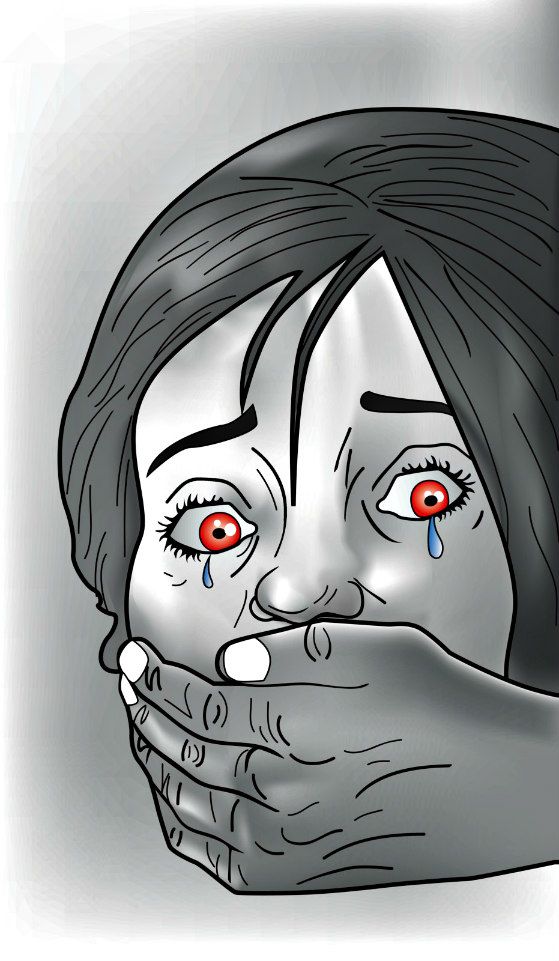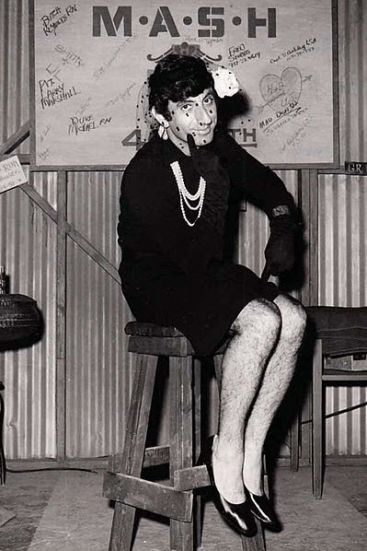- in Mental Health , Self harm by Tony
Mental Health In Literature, Part 4

Today's articles look at the darker side of love with abuse, which requires reflection and consideration for the reader to contemplate. The 1955 novel Lolita, by Vladimir Nabokov, a Russian-American novelist, handles the controversial subject of hebephilia, a profoundly unsettling and controversial exploration of obsession and the demonic aspects of human nature.
The second is a 1994 film, A Child's Cry For Help, which also tackles the sensitive subject of Munchausen Syndrome by proxy in a dramatic and thought-provoking manner. The mother feeds off the sympathy, attention and benefits that are given to them by their community for taking care of a sick or vulnerable person in their care.
More...
The following book under discussion received critical acclaim regardless of the controversy it caused with the public during that period; Lolita was considered one of Time's Best 100 Novels. However, to declare it was addressing hebephilia was simply sugar-coating the subject.

Hebephilia is a term used in psychology to describe a sexual interest or attraction towards individuals in the early stages of puberty, typically ranging from around 11 to 14 years old.
It is considered a form of paraphilia, which refers to atypical sexual interests or preferences. It is important to note that hebephilia is not a widely agreed-upon or officially recognised psychiatric diagnosis, but it occurs more frequently than paedophilia.
The Diagnostic and Statistical Manual of Mental Disorders (DSM-5), which is the standard classification manual used by mental health professionals, omits hebephilia as a separate diagnosis. The #MeToo movement has sparked greater awareness of it, and Vladimir Nabokov's Lolita has popularized and fetishized hebephilia.
Instead, it categorises paraphilic disorders under the overall category of "other specified paraphilia disorder" or "unspecified paraphiliac disorder".
Arguably the most controversial novel of the 20th century, Vanity Fair called it the only convincing love story of our century that can only be taken tongue-in-cheek.
Lolita explores the relationship between an unsettling yet intelligent paedophile and his young nymphet as their lives become increasingly intertwined over five years.
The story follows Humbert, a middle-aged man who becomes infatuated with his young stepdaughter, Dolores Haze, whom he calls Lolita.
Nabokov's masterful storytelling weaves together themes of love, desire, and morality in a way that captivates and disturbs readers.
One of the most striking elements of "Lolita" is Nabokov's use of language. His prose is simultaneously lyrical and disturbing, creating a sense of unease that permeates the entire novel.
The stream-of-consciousness narration allows readers to delve deep into Humbert's twisted mind, experiencing his obsessive thoughts and justifications first-hand.
This literary technique adds to the complexity of the narrative and forces readers to grapple with their own discomfort as they navigate Humbert's disturbing inner world.
The portrayal of Lolita herself has sparked heated debates among critics and readers alike.
While some argue that she is merely a victim of Humbert's manipulative mind, others contend that she possesses the tools to participate in their illicit relationship actively.
The New York Times 1958 review said, "Lolita is disgusting."
This ambiguity adds another layer of complexity to the novel, challenging readers to examine power dynamics and question societal norms surrounding consent and exploitation. Nabokov's ability to create such provocative characters is a testament to his writing skills.
Through his vivid descriptions and intricate character development, he explores the depths of human depravity while highlighting innocence's fragility.
"Lolita" serves as a chilling reminder of how easily individuals can be corrupted by their desires, and how blurred lines between right and wrong can become.
Plot Summary

Humbert travels to the United States and stays with a middle-aged woman and her 12-year-old daughter named Dolores, whom Humbert secretly refers to as 'Lolita. 'Humbert firmly attaches to Lolita and later marries her mother during her absence at summer camp.
Upon discovering her husband's obsession with their daughter, Lolita's mother becomes distraught and runs into the street and is killed in a car accident.
Humbert then takes Lolita away from the summer camp on a cross-country trip, informing her that if they are discovered, she may lose everything she holds dear and become a ward of the state.
Throughout their journey, Humbert engages in unethical behaviour by offering bribes for sexual favours.
In Humbert's narrative of his relationship with Lolita, he seeks empathy from the reader due to his illness, despite the absence of any attempts to seek treatment or resist his unhealthy urges. Instead, he fully embraces them.
Lolita is portrayed as a vulnerable character who engages in a sexual relationship with Humbert despite being a minor.
She makes questionable choices, which is not uncommon for someone her age, and initiates this relationship after her first sexual experience with a boy at Summer camp. Lolita practically begs for Humbert to make love to her.
Nevertheless, she is still a victim of statutory rape. In conclusion, "Lolita" is an audacious work that pushes boundaries thematically and stylistically.
Nabokov's exploration of obsession, morality, and nympholepsy with the destructive power of craving only forces readers to confront uncomfortable truths about human desires.
Despite its controversial subject, "Lolita" remains a literary masterpiece that continues to challenge and provoke audiences today.
Many critics describe Lolita as a psychological novel, akin to Crime and Punishment by Fyodor Dostoyevsky (another Russian author).

Crime and Punishment, a novel by Fyodor Dostoevsky, delves into the complex psychological landscape of its protagonist, Raskolnikov, as he grapples with guilt and the moral implications of his actions. Set in St. Petersburg, Russia, the story follows Raskolnikov’s descent into madness after he commits a brutal murder.
Dostoevsky’s exploration of the human psyche and the consequences of one’s choices makes Crime and Punishment a timeless masterpiece that continues to captivate readers.
At the heart of Crime and Punishment is the theme of redemption and the search for meaning in an indifferent world.
Raskolnikov’s internal struggle reflects the existential dilemmas faced by individuals living in a society plagued by poverty, inequality, and moral decay.
Through his vivid portrayal of Raskolnikov’s inner turmoil, Dostoevsky raises profound questions about justice, morality, and the nature of human existence.
Dostoevsky’s writing style in Crime and Punishment is characterised by long, introspective passages interspersed with sudden bursts of action. This creates a sense of unease and unpredictability, mirroring Raskolnikov’s own fragmented state of mind.
The use of stream-of-consciousness narration allows readers to delve deep into Raskolnikov’s thoughts and emotions, providing an intimate understanding of his inner struggles.
Furthermore, Dostoevsky masterfully weaves multiple narratives together to create a rich tapestry of characters who reflect different aspects of society.
From Porfiry Petrovich, the shrewd detective who seeks to unravel Raskolnikov’s motives, to Sonya Marmeladova, a young prostitute who offers him redemption through her unwavering faith, each character adds depth and complexity to the overarching themes explored in the novel.
Crime and punishment remain relevant today as it forces readers to confront their own moral compass and consider the consequences of their actions.
Dostoevsky’s exploration of guilt, redemption, and the pursuit of justice transcends time and place, making Crime and Punishment a timeless classic that continues to resonate with audiences worldwide.
Yet, Crime and Punishment by Fyodor Dostoevsky and Lolita by Vladimir Nabokov share similar themes despite being different in plot and setting. Both novels delve into complex moral and psychological themes, exploring the depths of human nature and the consequences of immoral actions.
Firstly, both novels explore the concept of guilt and its effects on the protagonists. In Crime and Punishment, the main character, Raskolnikov, commits a premeditated murder and is haunted by guilt throughout the story.
Similarly, in Lolita, Humbert engages in a forbidden relationship with a young girl, and his guilt and internal conflict are central to the narrative.
The protagonists in both novels grapple with their actions, leading to a profound exploration of guilt, remorse, and the burden of conscience.
Secondly, both novels explore the themes of obsession and the destructive power of desire. In Crime and Punishment, Raskolnikov's obsession with his theory of the 'extraordinary man' drives him to commit the murder, ultimately leading to his downfall.
In Lolita, Humbert's obsession with the young girl, Lolita, leads him down a dark path of manipulation and immorality.
Both novels offer a deep analysis of the human psyche, showcasing how unchecked obsessions can lead to tragic consequences.
In Lolita, Humbert actions defy societal standards of morality, and he constantly fears being discovered and condemned.
Thereby, both novels examine the themes of guilt, obsession, and societal judgment, exploring the complexities of human nature and the consequences of immoral actions.

Finally, for this section, there has been an increase in the presence of a concerning sexual abuse in literature, particularly in novels such as "50 Shades of Grey" and "Twilight."
These stories revolve around the portrayal of relationships and gender dynamics and explore themes of desire, love, and longing, which resonate with readers and evoke strong emotions.

Moving forward, the 1994 film A Child's Cry For Help tackles the sensitive subject of mental health in a dramatic and thought-provoking manner.
A recently-widowed doctor, Paula Spencer, moves with her daughter Amanda from California to commence at a new hospital leaving the past behind, but on her first day at work, A loving mother Monica Shaw, brings her son Eric into the hospital for treatment.
The doctor suspects that something is wrong and theorises that the mother is deliberately making her son sick so she can rush him to the hospital and get attention for herself.
This fictional film revolves around a recently widowed doctor Paula Spencer who experiences distressing events after hiring a housekeeper. The new housekeeper, unbeknownst to doctor Spencer, begins to take items of sentimental and financial value from the family, leading to emotional and financial distress.
The film depicts the doctor's struggles and challenges as she navigates her new life as a single parent. The loss of her spouse and the responsibilities of raising a rebellious teenage daughter alone already create a vulnerable situation for her. However, the malicious actions of the housekeeper further exacerbate her emotional state and financial stability.
The doctor starts to doubt her own judgment of both the housekeeper and the sick patient Eric in her charge.
When the doctor decides to restrict Monica access to Eric and then reports her to Child Services, the mother decides to sue the doctor and the hospital. Some members of the hospital board don't agree with her diagnosis, or they think she's overreacting. Even away from his mother, Eric remains sick
Is the doctor right or wrong?
Eric lied to the medical staff at the hospital when asked about previous treatments, and there are several possible reasons why the Munchausen victim may lie to the medical staff.
Firstly, they may have been coerced or manipulated by the caregiver into presenting false symptoms. The mother may have convinced them to lie to maintain her control or attention. The victim may fear the consequences of telling the truth, or may have been threatened by the caregiver if they disclose the true facts.
Besides, the child may have developed a psychological dependence on the attention and care they receive when they are perceived as being sick. They may view the lies as a way to maintain this attention and fear losing the mother's affection or care if they reveal the truth.
Dr. Spencer believes that losing the court case will mean Eric's death until the prosecution drops a bombshell with the revelation that Eric had been admitted to various hospitals in Seattle with laxative abuse and a previous child by Monica had died.
Through powerful performances and poignant scenes, "A Child's Cry For Help" sheds light on the long-lasting effects of childhood trauma, neglect and Munchausen Syndrome by proxy.
The movie serves as a reminder that mental health issues can arise at any age, and it emphasises the importance of recognising and addressing these challenges with empathy and support.
By portraying the doctor's distress, the film draws attention to the emotional impact of such events and encourages viewers to empathise with the characters. It serves as a reminder to be vigilant and aware of the potential dangers that can arise in seemingly ordinary situations.
By portraying such a distressing yet important topic, "A Child's Cry For Help" contributes to today's ongoing conversation about mental health awareness.
Munchausen syndrome by proxy, also known as Factitious Disorder Imposed on Another (FDIA), has historically been diagnosed predominantly in mothers.
Caregivers with this condition intentionally attempt to harm or describe non-existent symptoms in their children to get the attention given to the family of someone who is sick, according to the Cleveland Clinic.
A 2017 study looking at nearly 800 published cases of Munchausen syndrome by proxy found that about 95% of the time, a victim's abuser was their mother.
Many literary works have explored this disturbing psychological disorder, shedding light on the complexities of the human mind.
By delving into the fictional realms, we can gain a deeper understanding of the complexities and consequences of this syndrome.
Sharp Objects

This isn't the only book or film to bring this disorder to the public eye—notably, HBO's thriller series Sharp Objects by author Gillian Flynn turns out to be much darker and more ambitious than your average who-dun-nit. Sharp Objects is not just a traditional murder mystery. It has a compelling narrative, complex characters, and thought-provoking themes with dark secrets hidden beneath the surface of a seemingly idyllic community.
In Sharp Objects, Gillian Flynn's debut novel, the audience is in suspense regarding how much the community knows about the truth behind a horrifying crime. The story follows a journalist named Camille Preaker, who returns to her hometown to investigate the murder of two young girls. As Camille delves deeper into the investigation, she uncovers dark secrets and hidden truths about her own family and the community she grew up in.
Throughout the novel, Flynn skilfully weaves a narrative that keeps the audience guessing and questioning the extent of the community's knowledge about the crimes.
As Camille interacts with various individuals in the town, she begins to suspect that there may be a deep-rooted conspiracy or cover-up happening. This creates a sense of intrigue and uncertainty for both Camille and the readers.
Flynn strategically unveils information and drops hints throughout the story, making it difficult to determine which characters are genuinely aware of the truth and to what extent. The author deliberately plays with the readers' expectations, leaving them to question the motivations and secrets of each character.
By leaving the audience wondering about the community's knowledge of the crime, Flynn adds an element of mystery and keeps the readers engaged until the twist at the end. This narrative technique creates a sense of unease and tension, making the novel and film gripping and suspenseful.
Overall, the Factitious disorder imposed on self was previously called Munchausen syndrome. This disorder is more complex than simple dishonesty.
Most recently, the disorder and its tragic effects were dramatised within The Act. This Hulu series takes on one of the most significant and sensational real-life disorder cases.
The series, which recently concluded, tells the true story of Dee Dee Blanchard and her daughter Gypsy, played by Patricia Arquette and Joey King, respectively. Gypsy was thought to have a litany of illnesses, some of which required her to use a wheelchair.
In this case, the child was under the influence and manipulation of the caregiver, who was causing harm to the child intentionally. Using her child to garner sympathy and charitable donations, Dee Dee used the medical knowledge she'd picked up through prior experience working as a nurse's aide to convince others that she knew what was suitable for her daughter's care.
Gypsy grew up believing she was ill until she discovered, at 19, that she was not actually sick at all. Before that point, Gypsy's attempts to rebel against Dee Dee were suppressed.
Their life together and the lies upon which it was based came to a brutal end in 2015 when Gypsy's boyfriend murdered Dee Dee in a murder plotted by the couple.
People with Munchausen syndrome often go to great lengths to deceive others, such as intentionally inflicting harm on themselves or tampering with medical tests.
They may seek unnecessary medical procedures, constantly change doctors, or hop from one hospital to another.
The underlying motive for this behaviour is the desire for attention and the emotional gratification that comes from being seen as a sick or injured individual.
It is a mental health problem that is associated with severe emotional difficulties. People with this disorder resemble malingerers because their actions are conscious and intentional.
The main difference between Munchausen syndrome and malingering lies in the motivations behind the behaviour.
The need for attention and sympathy drives Munchausen syndrome, while specific external rewards or gains drive malingering.
Malingering refers to the act of intentionally exaggerating or feigning an illness or injury for personal gain or to avoid undesirable situations, such as military service.
Klinger's character on the television
Program called Mash, used various tactics, such as wearing women's clothing, and writing love letters to generals to appear mentally unstable for active service in the hope of securing a Section 8 discharge.
As a child, did you ever feign illness to skip school?
For example, You would certainly know when the local military regiment conducted field exercises because the Garrison medical centre was utterly full before deployment.
However, it is important to note that in real-life situations, malingering is not encouraged or condoned as it undermines the integrity of the system and can have legal consequences.
Unlike Munchausen syndrome, individuals who are malingering are fully aware of their actions and motivations and are consciously aware they are manipulating the situation.
Healthcare professionals, through careful evaluation and assessment, can often identify signs and patterns that indicate malingering.
Mobile Army Surgical Hospital (M*A*S*H)

In the TV series M*A*S*H, mental health is often portrayed through the experiences and challenges faced by the characters in a war zone. The show tackles the topic of mental health by highlighting the psychological toll of war on the doctors, nurses, and other personnel stationed at the Mobile Army Surgical Hospital (MASH).
While M*A*S*H has been commended for its portrayal of war, race, sexuality, and the women's rights movement, mental health is a topic that has appeared in every season yet does not receive the same acclaim.
Season One's "Bananas, Crackers and Nuts." This episode features one of the main characters, Captain Benjamin "Hawkeye" Pierce, faking mental illness to obtain a pass to go to Tokyo for a few days.
While this episode does not approach the subject seriously and can be considered insensitive in its portrayal, it does emphasise the importance of mental stability and mental health.
In this episode, Hawkeye learns a lesson by nearly being institutionalised by a military psychiatrist, an outcome much more severe than he intended by his behaviour.
Who could forget about the antics of Corporal Maxwell Klinger for wearing women's clothing to receive a Section 8 psychological discharge?
In the early seasons, Klinger constantly tells others he is insane and has no reason to be in the army.
The military psychiatrist tells Klinger he will not sign the Section 8 psychological paperwork for him, but that he will file a declaration that permanently labels Klinger as "a transvestite and a homosexual."
Klinger refuses to sign any such paperwork, since he does not want to be dishonourably discharged, or labelled that way because he was merely crazy.
As the series progressed, Klinger eventually gave up his dreams of a psychological discharge and embraced his role in the MASH unit.
Transhausen by proxy

This leads us to a new and disturbing term, Transhausen by proxy," coined for parents who push so-called "gender transitioning" on their children and are responsible for the sudden rise of transgender children, some experts say are being groomed.
Some psychiatrists said parents are to blame in some cases of gender dysphoria. Dr. Az Hakeem, a psychiatrist who worked at the Portman Clinic until 2012, was quoted by two National newspapers as saying he was concerned with cases that smacked of "transhausen by proxy."
He described instances in which parents of toddlers came to the clinic wanting a son instead of a daughter or vice versa. He said that parents may see their children as objects to be used to gain attention, or may even see them as extensions of themselves.
Transgender children learn to modify their behaviour to receive approval from their parents. Doctors who promote so-called "gender-affirming care often are praised by their peers as life-saving heroes.
Appearing "empathetic and progressive" in this way helps some doctors climb the social hierarchy in some circles. The mainstream medical community widely recognises gender-affirming care as being the best practice for treating kids with gender dysphoria, and it has been shown in research to significantly reduce adverse psychological outcomes, including suicidal ideation, in trans children.
The American Medical Association stated transgender individuals are three times more likely than the general population to have a mental health disorder, and this is widely thought to be a consequence of the stress of being a minority, chronic stress from coping with societal stigma and discrimination because of their gender identity and manifestation.
Hotline or organization (The National Sexual Assault Hotline number is 800-656-4673).



